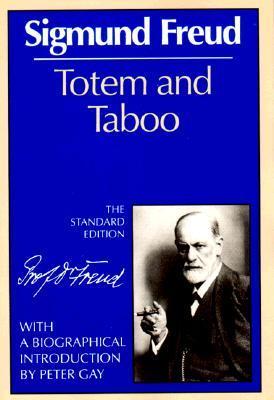More on this book
Community
Kindle Notes & Highlights
The younger males being thus driven out and wandering about would also, when at last successful in finding a partner, prevent too close breeding within the limits of the same family” [187]. Atkinson [188] seems to have been the first to recognize that these conditions of the Darwinian primal horde would in practice bring about the exogamy of the young men.
Each one of those driven away could found a similar horde in which, thanks to jealousy of the chief, the same prohibition as to sexual intercourse obtained, and in the course of time these conditions would have brought about the rule which is now ...
This highlight has been truncated due to consecutive passage length restrictions.
After the advent of totemism the rule would have changed into a different form: no sexual in...
This highlight has been truncated due to consecutive passage length restrictions.
The child unhesitatingly attributes full equality to animals; he probably feels himself more closely related to the animal than to the undoubtedly mysterious adult, in the freedom with which he acknowledges his needs. Not infrequently a curious disturbance manifests itself in this excellent understanding between child and animal.
The child suddenly begins to fear a certain animal species and to protect himself against seeing or touching any individual of this species. There results the clinical picture of animal phobia, which is one of the most frequent among the psychoneurotic diseases of this age and perhaps the earliest form of such an ailment.
But a number of such phobias directed against larger animals have proved accessible to analysis and have thus betrayed their secret to the investigator. In every case it was the same: the fear at bottom was of the father, if the children examined were boys, and was merely displaced upon the animal.
After assurances had relieved the boy of his fear of his father, it proved that he was fighting against wishes whose content was the absence (departure or death) of the father. He indicated only too plainly that he felt the father to be his rival for the favour of the mother, upon whom his budding sexual wishes were by dark premonitions directed.
the ‘Oedipus complex’ in which we recognize the central complex of the neuroses
Through the analysis, of ‘little John’ we have learnt a fact which is very valuable in relation to totemism, namely, that under such conditions the child displaces a part of...
This highlight has been truncated due to consecutive passage length restrictions.
The hate which resulted from the rivalry for the mother could not permeate the boy’s psychic life without being inhibited; he had to contend with the tenderness and admiration which he had felt for his father from the beginning, so that the child assumed a double or ambivalent emotional attitude towards the father and relieved himself of this ambivalent conflict by displacing his hostile and anxious feelings upon a substitute for the father.
As soon as his fear was moderated he identified himself with the feared animal; he jumped around like a horse, and now it was he who bit the father [192]
We may venture the impression that certain traits of totemism return as a negative expression in these animal phobias of children. But


